Outsourcing
In-house Development Team or Outsourced IT Services: Which Is More Beneficial for Your Business?

It’s a question we hear all the time and one that can be difficult to answer. You may have heard of companies who have outsourced IT departments and others who have brought in-house developers. However, you may not know which is better for your business.
With the ever-changing landscape of tech, it can be hard to know whether you should outsource your IT services or keep them in-house. It's a question that many companies ask themselves when they're trying to decide how best to build their product. Both IT department outsourcing and insourcing are effective ways to build your product, but each has its own pros and cons.
In this article, we'll take a look at both options so you can decide which option is right for your business.
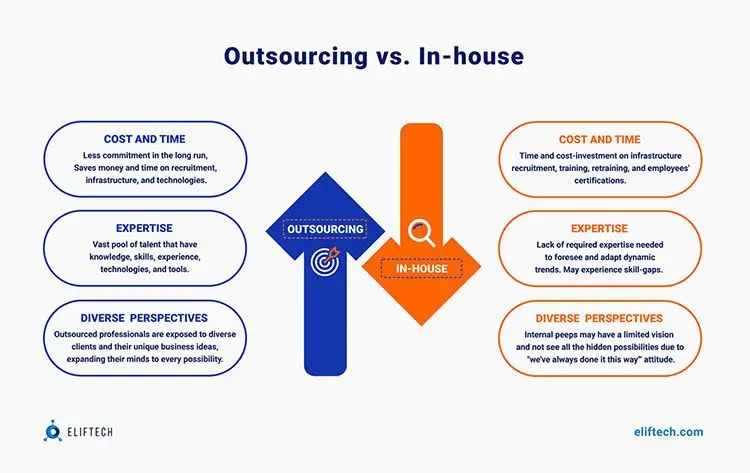
Outsourced IT Services and In-House Team: What Are the Main Differences?
IT outsourcing has been one of the most controversial topics of the last two decades. Yet, companies worldwide use this business strategy to grow by reducing operating costs and improving service quality.
But while some entrepreneurs praise the benefits of IT department outsourcing, others are sharing their bad experiences with IT outsourcing companies. Such a contrast in the experience of entrepreneurs cannot but confuse and very often prevents them from making the right decision.
Consider all the pros and cons of IT project outsourcing to understand whether such a model is right for you. But first, let's look at the two models on the shelves and understand their differences.
In-house Team
Internal development or “insourcing” refers to creating software within your company. In-house development services are great for companies that have the resources, including time and money, to invest in their own internal IT team.
This process involves full-time developers with a fixed salary and other employment benefits. However, this option allows you to grow your team of specialists within the company. You get to recruit the staff and know these specialists from the first day. This can be beneficial when you are developing strategies and analyzing the results of your company. Everything from corporate culture to the pace of development is under your control.
Now you need to get started developing an efficient development department. First of all, you need an experienced development director. Choosing someone qualified and skilled would be best because this is an essential management function. Developing software in-house also requires setting up an office or infrastructure with all the amenities (hardware and software).
Outsource Development Team
When you outsource services, you're essentially hiring people from another company to do work for you. Outsourcing services also allows companies to focus on their core competencies while letting others handle other aspects of their business. In this case, the hired software development team will work remotely or from an offshore location (country). With outsourcing, you can hire offshore staff hourly, on a fixed salary basis, or as per project requirements.
One of the biggest benefits of IT outsourcing services is that it allows companies to grow without having to hire more employees. If a company needs to grow quickly but can't afford to hire new employees, IT outsourcing services are a great solution because it allows them to scale up quickly without having any negative impact on their existing staff members or infrastructure. And there are many companies that have proven that IT outsourcing is a smart business strategy. The key is choosing the right kind of outsourcing partner who can help you achieve your goals while reducing the risks involved with it.
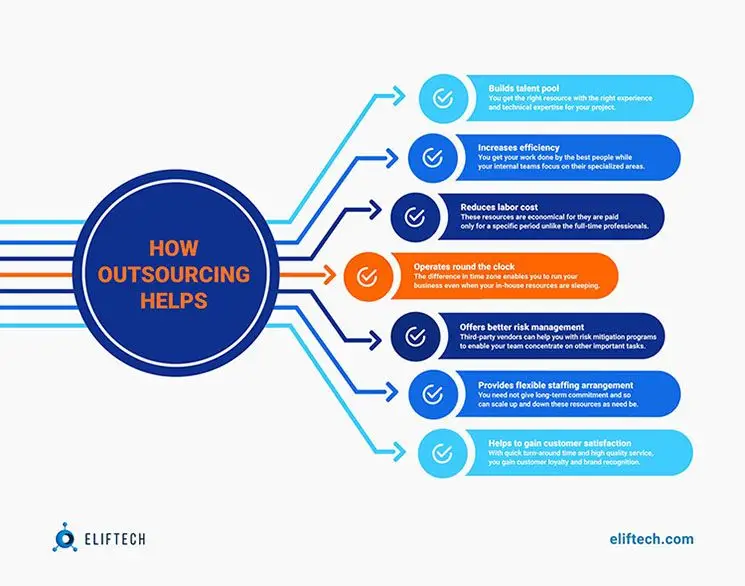
IT Project Outsourcing and In-house: Pros and Cons
Now that you have a solid understanding of the two concepts let's start comparing in-house team versus outsourced IT department by looking at their pros and cons.
These days companies are constantly outsourcing. While people associate IT outsourcing with large corporations, this can also be suitable for developing medium-sized businesses. Usually, the owner hires a development team that is already established. In addition, hiring a company designed for solving specific problems and building business strategies is also possible.
IT Outsourcing: The Broad Price Range
Now consider the option of transferring the functions of strategic development to IT outsourcing. According to the Harvard Business Review, the cost of work on the initial audit, research, and development in the US will cost between $70K and $250K. However, software development costs in 2023 are greatly impacted by factors that make accurate pricing challenging.
While the ballpark can give you a subtle idea of the average software development costs, professional project estimating factors in clear business requirements within the approved schedules, budgets, and time frames. Therefore, accurate estimation is only possible with prior analysis of your project, business objectives, and other externals.
On the other hand, a complete development team in a different country can offer rather competitive prices. For example, outside the US, the same service can sometimes be 65% to 75% cheaper. Project-based fees in the digital development industry in the US tend to range drastically depending on these factors:
- Software type and complexity
- Platforms
- UX\UI design complexity
- Back-end infrastructure
- API
IT project outsourcing is not a synonym for cheap labor. It’s more than just getting a lower price and more efficient services. It can help your company achieve its goals while reducing risk.
It is not surprising that many companies consider outsourcing IT department, so the global outsourcing market in 2022 has doubled in size. According to recent statistics, over 37% of startups and small businesses outsource at least one process, and 92% of the Forbes Global 2000 Companies all outsource IT operations. This shows that more and more businesses are willing to invest in IT outsourcing as it’s a way to increase efficiency and save money.
In addition, most companies prefer IT outsourcing as it allows them to focus on their core business while getting the services they need from outside vendors. Additionally, nowadays, it's easy to connect on a global scale. That is why US-based companies practice outsourcing development content creation. This allows companies to save money while still getting the desired level of quality.

In-house Team: High Expenses
Many companies find it difficult to hire the right people, which means they have to spend a lot of money on salaries and benefits. In addition, they need to invest in training employees and providing them with the necessary tools. This overhead can become quite expensive over time. When businesses outsource their IT services, they avoid these costs as their vendors do all of this for them.
According to the Small Business Administration, employment costs are up to 1.4 times higher than the employee's salary. For example, the salary for a CTO in the US ranges from $251,647 and $330,771. The national average for Senior Developers in 2023 stays around $7,000. In comparison, a year's salary for a competent Junior Developer is $4500 monthly. Of course, prices will vary depending on the industry, tech stack, and the developer's country of origin. Besides, searching for a qualified development team can, on average, take 1-6 months. Therefore, at least six months will be needed to form a team. In addition, 1.5 months is usually spent on properly training employees.
Although the in-house team is reliable, efficient, and stable, it can be unreasonably expensive, especially for small businesses and startups.
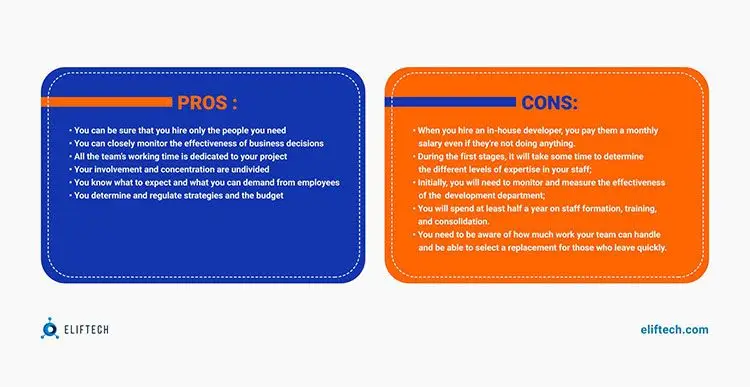
Outsourced IT Services: Why Does It Suit Your Business Better?
While it's true that having an in-house development team can help a company save money in the long run, the benefits of outsourcing IT services far outweigh those of having an in-house team.
When you're running a business, you want to focus on the things that matter most. You want to be able to rely on your team and know that they'll be able to handle any challenges that come up. That's why outsourcing your IT projects can be such a smart move.
Reduced Costs
The reasons IT project outsourcing is a better option for your business are vast and varied. The first and perhaps the most important reason is cost savings. When it comes to IT projects, there are lots of unknowns and risks that can throw a wrench in your plans—which can lead to delays and cost overruns. By working with an outsourced team, you can eliminate these issues by hiring experts who know what they're doing and have the right tools at their disposal.
Outsourced IT services also save money by allowing companies to access skilled talent at lower rates than they'd pay if they hired someone locally. This makes it possible for companies to offer their products at lower prices than their competitors do.
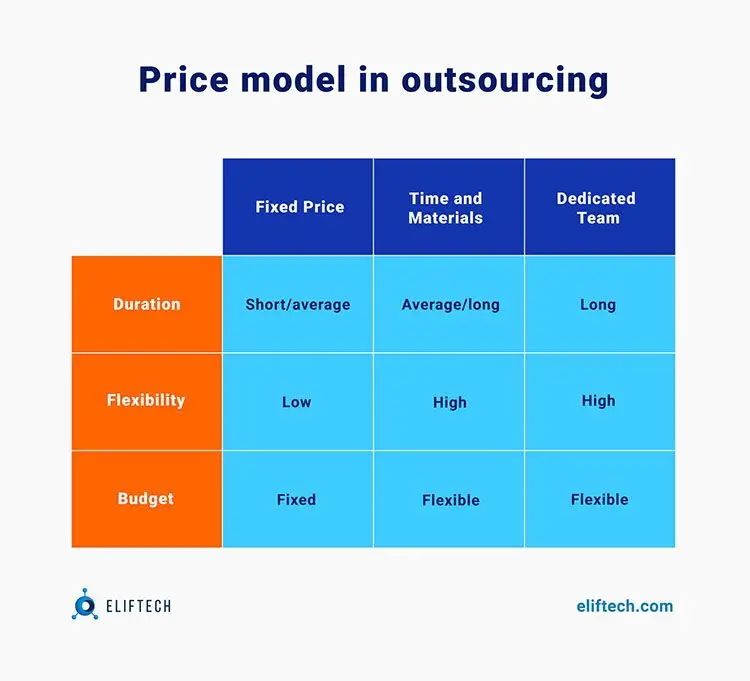
Dedicated Team
As a business owner, you know that outsourcing IT projects is one of the best ways to ensure that your company is able to meet its goals without having to sacrifice quality. But why is this? Why should you consider outsourcing when it comes to your IT needs?
The answer is simple: IT outsourcing provides you with access to a team of experts who are dedicated solely to handling your technology needs. When you outsource IT department, your business will have access to a team of people who can take on any task or challenge with ease. They'll be able to handle any problem that comes their way, whether it be technical or managerial.
This means that your company won't have to worry about managing these issues internally and can instead focus on what matters most: growing revenue and making an impact in your industry.
High Level of Expertise
The sacred idea of a complex technology startup, for which IT outsourcing is not profitable, or a startup of death, where the in-house team sucks money for years. We can immediately name as many concrete examples as we like from our practice of how a newly created in-house team drains half of the development budget.
This is where outsourcing IT services comes into play. Sometimes, we are approached by those for whom IT outsourcing could be a more suitable option. According to multiple studies on startup backgrounds, startups are more successful when founders with technical backgrounds hire people with business skills rather than the other way around. Founders with technical experience can always formulate a criterion according to which they can decide on the choice of a technical partner, and founders with no technical experience cannot do this, so it doesn't matter whom they choose: employees or an outsourcing team, it's still more difficult for them to make this choice. However, the truth is always the same: To become a full-fledged business, the product must be developed by a professional team.
But if you're looking for a way to cut costs and free up your employees to focus on growing your company instead of maintaining its infrastructure, outsourcing your IT services might be the answer. When you outsource your IT needs to a third party, they can take care of all of your technology needs without you having to hire an in-house team or invest in expensive hardware and software.
Reduced Risks
When you outsource IT services, there's less chance of failure. Businesses may be afraid that they will not be able to retain expertise. Understanding these fears, an experienced outsourcer helps the customer maintain control over the project and optimally organize the workflow. You'll save money by not having to hire full-time staff members who could be working on other projects that bring in revenue instead.
Increased Productivity and Scalability
It is important to understand what the innovativeness of the proposed business is based on. This is a tricky question if you are a beginner. A startup often thinks the software is the most important part of its project. However, in the vast majority of cases, this is not the case.
The innovation lies in the business model, and it would be good for the founder to focus on it and entrust the rest to the IT outsourcing company. For example, before developing an MVP, it is extremely important to make a pilot, test the hypotheses of the pilot, and only after that decide which hypotheses you plan to test with the first version of the product.
Here is where IT outsourcing comes in. With the right strategy, outsourced IT services are the way to streamline your business and make sure it runs as efficiently as possible. Contact us today to learn about the benefits of outsourced IT services.
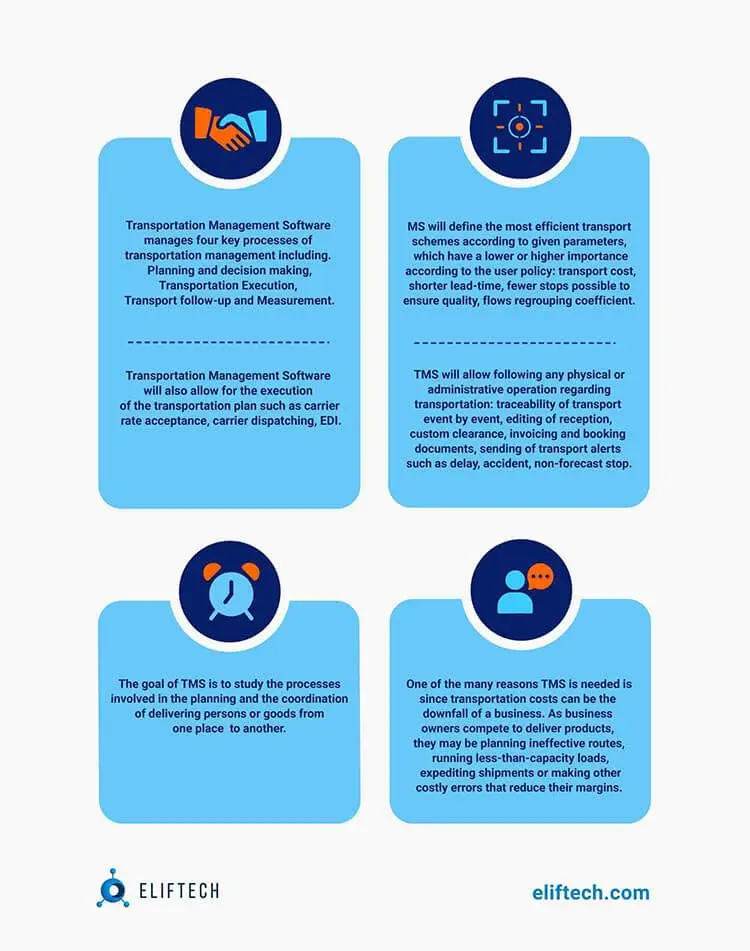
The Basic Criteria to Make Up Your Mind
There is a long list of reasons to outsource IT department. We’ve grouped the leading four:
You Lack Top Talent In-House
As the demand for technology grows exponentially, businesses, from startups to multinationals, need help attracting, hiring, and retaining top tech talent. From skilled software engineers to highly experienced project managers, putting bodies in seats from North America to Western Europe is a struggle.
According to a recent survey of over 3000 technology leaders, 65% said hiring challenges hurt the industry (a 6-point increase from the previous year). Whenever demand far outpaces supply in the labor market, the best minds in the business will be snapped up by companies offering the most attractive remuneration and benefits packages.
This creates a situation where enterprises need more staff to focus on new and existing projects. There need to be more bodies in the building to get things done on time and within budget. Whenever this is the case, the time to hire will slow down projects while diminishing your competitive edge in the marketplace. In this scenario, IT outsourcing is a viable option that helps fill the gaps quickly. It also ensures that your business keeps pace with the competition.
Budget Matters
Before starting a software development project, choose your project management model. Fixed price, time, and material, or hybrid? In this scenario, you must consider whether your new digital product will succeed. So if you hire a whole new team of software developers, you’ll also have to consider the costs of employment contracts, equipment, and rent. So if things don’t go as planned, businesses stand to lose much more when they follow this approach.
If we take the Time and Material model, for example, your company will simply agree on a partnership that can be scaled up or down based on present needs. In the early days, the primary idea behind outsourcing IT projects and other business processes across continents was to cut costs. While it’s no longer the only reason we engage in this activity, it still plays a critical role in software development.
Access to Project-Specific Expertise
Established IT outsourcing companies have extensive experience working on various projects. As a result, these companies boast a wealth of rare expertise that you might need help finding in your local area. So if you’re building a unique and innovative product that demands highly sort after skills and experience, you’ll probably stand a better chance of succeeding by looking beyond your borders.
If uncomfortable with nearshoring or offshoring the entire project, you can also embrace an extended team model. With this approach, you can get your in-house developers to work with your IT outsourcing partner using the latest project management and communications tools. In this scenario, remote developers will be transformed into a full-blown branch of your company. At the same time, you continue to function as the head office.
Long-Term Strategic Partner
The problems with supply and demand regarding top tech talent aren’t going away anytime soon. So if you’re considering releasing updates, patches, and new versions of your digital product, it’ll make sense to get into a long-term strategic partnership with an IT outsourcing partner.
This approach will help you hold on to many of the same software engineers who worked on the first incarnation of the product, so you won’t have to waste time getting a new software development team up to speed. When you get into long-term partnerships, it will also make it easier to ensure enhanced security and privacy.
Finishing Thoughts
An outsourced IT department is a convenient solution that will likely cost you less in the long run. Yes, a downside is that you don’t control the process completely. You can only track the results on a daily/weekly basis. However, the probability of the performance quality is quite high because the team already has the experience and well-established methods. They also have a solidified name in the market that they don't want to risk tarnishing.
So, does the psychological benefit you get from knowing that your employees are closer to you outweigh the financial cost? This is solely for the business owner to decide. Unfortunately, mistrust of IT outsourcing seems prevalent in the business community. Because of this distrust, smaller businesses tend to be more inclined to try to develop their own (possibly inferior) development team than hire an outside one.
Make your digital dreams come true, or make managing your workflow easier for your in-house development team by getting outsourced help. We are ready to discuss your project anytime you are ready.
